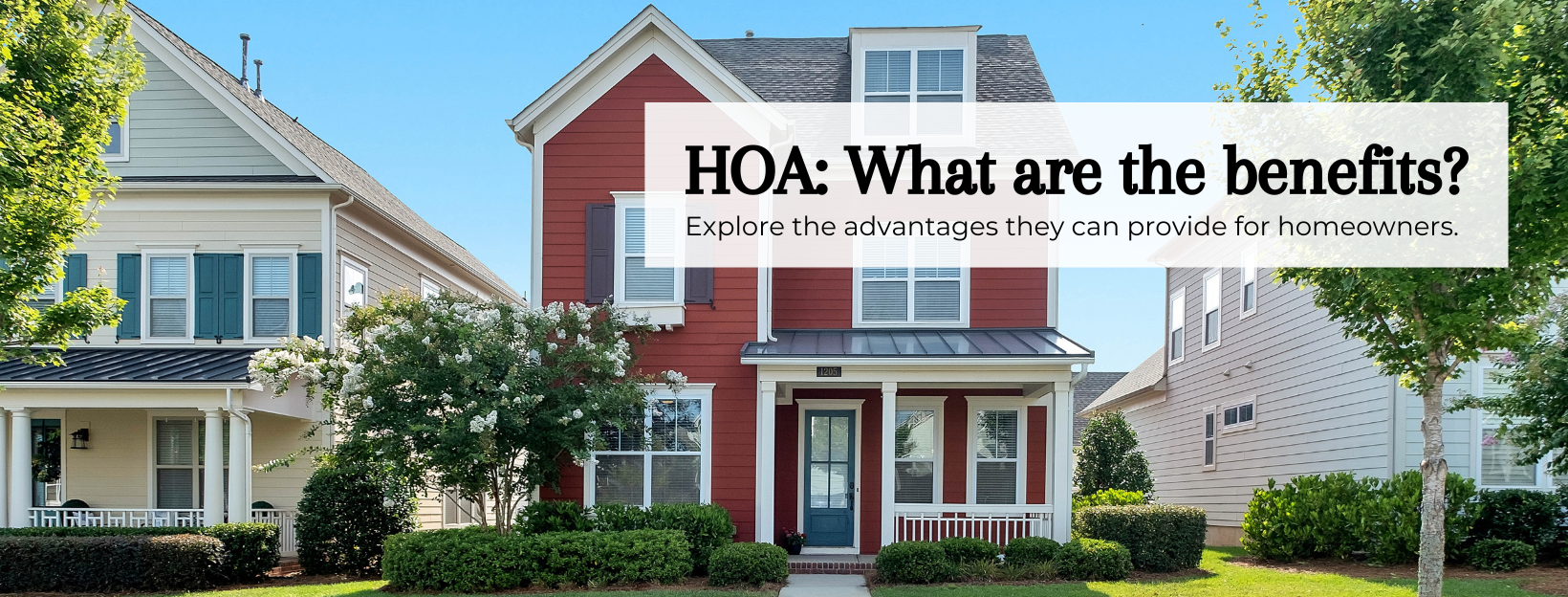When you’re in the market for a new home, you may come across properties that are part of a Homeowners’ Association (HOA). Understanding what HOA is and the potential benefits it can offer is crucial when making your real estate decisions. In this blog, we’ll delve into the world of HOAs, explaining what they are and exploring the advantages they can provide for homeowners.
What is HOA?
A Homeowners Association (HOA) is a private organization established within a community or development, typically a condominium complex, townhouse community, or planned subdivision. Its primary purpose is to manage and maintain common areas and enforce community rules and regulations. Homeowners within the community are usually required to become members of the HOA and pay regular dues or fees.
Benefits of Living in an HOA Community:
- Property Maintenance and Aesthetics:
One of the most significant benefits of living in an HOA community is the consistent maintenance and upkeep of common areas. HOAs typically take care of landscaping, road maintenance, and exterior maintenance of properties. This ensures that the neighborhood or complex remains visually appealing and well-maintained, which can positively impact property values.
- Amenities and Services:
Many HOA communities offer residents access to amenities such as swimming pools, fitness centers, parks, and recreational facilities. These amenities can be expensive to maintain individually but are often included in the HOA fees, allowing residents to enjoy a higher quality of life without the added costs.
- Community Regulations:
HOAs establish rules and regulations that govern the community, which can help maintain a peaceful and harmonious living environment. These rules often cover issues such as noise restrictions, pet policies, and architectural guidelines. By enforcing these rules, HOAs contribute to a sense of order and consistency within the community.
- Property Value Protection:
The standards set by an HOA can help protect property values. By ensuring that all properties within the community are well-maintained and adhere to specific guidelines, HOAs help prevent potential eyesores or undesirable changes that could negatively impact property values.
- Conflict Resolution:
In the event of disputes between homeowners, HOAs can provide a structured process for conflict resolution. This can help maintain neighborly relations and prevent minor issues from escalating into major conflicts.
- Collective Bargaining Power:
HOAs often negotiate collectively for services such as trash removal, security, and insurance, potentially reducing costs for individual homeowners. This collective bargaining power can lead to cost savings and added value for residents.
- Community Engagement:
HOAs often organize community events, meetings, and social gatherings, fostering a sense of belonging and community engagement. This can be especially beneficial for newcomers, as it helps them quickly integrate into the neighborhood.
Homeowners’ Associations play a vital role in maintaining the overall quality and well-being of a community. While there are fees associated with living in an HOA community, the benefits, including property value protection, amenities, and a sense of community, can make these fees a worthwhile investment. If you’re considering purchasing a home in an HOA community, it’s essential to thoroughly understand the HOA’s rules and fees to make an informed decision that aligns with your lifestyle and preferences.


 Facebook
Facebook
 X
X
 Pinterest
Pinterest
 Copy Link
Copy Link


